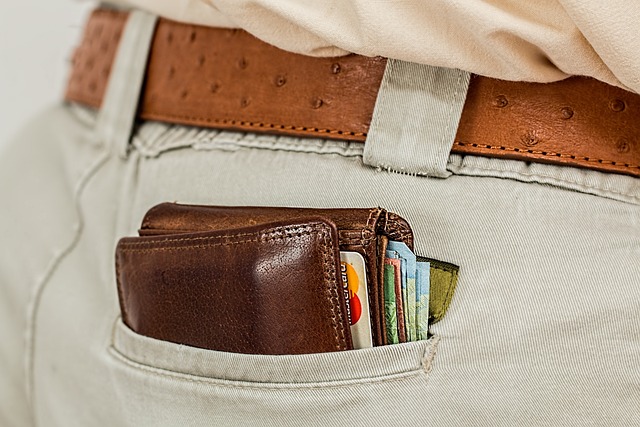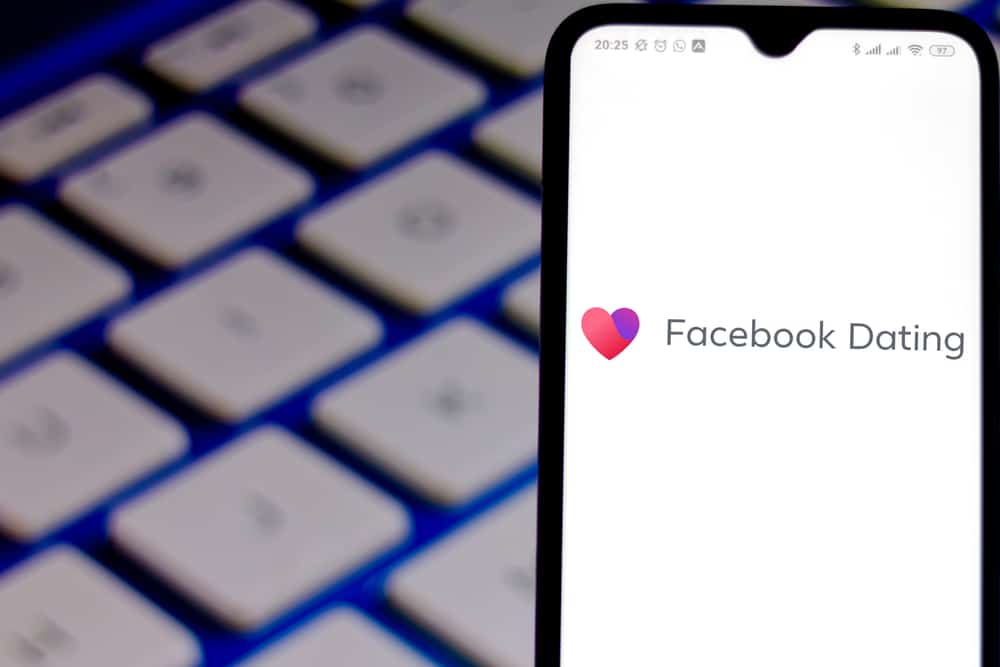How to Find Out if Someone Opened a Credit Card in My Name
Michelle Wilson - April 8, 2023

Credit card security is a critical issue that affects millions of people worldwide. According to a 2020 Federal Trade Commission (FTC) report, credit card fraud was the second most common type of identity theft, affecting over 270,000 consumers.
The following guide will help determine if a malicious party has opened a credit card under your name. In the content, you gave useful tips on recognizing signs of credit card fraud and the steps you should take if you find yourself in this situation.
Table of Contents
Signs That Someone Has Opened a Credit Card In Your Name
Credit card fraud can have devastating consequences but is not always easy to detect. Here are some common signs that someone has opened a credit card in your name:
Unfamiliar Transactions On Your Credit Report
One of the most notable signs that a fraudster has opened a credit card in your name is unfamiliar transactions on your credit report. You should check your credit report regularly and look for transactions you don’t recognize. If you find any, it’s essential to investigate further as they could be a sign of credit card fraud.
Sudden Drop in Credit Score
If your credit score suddenly drops, it could indicate that someone has opened a credit card in your name. Creditors report new accounts to the credit bureaus, and if someone has opened a new account in your name, it could negatively affect your credit score.
Receiving Credit Card Statements That You Did Not Apply For
Receiving credit card statements for credit cards you did not apply for strongly indicates that someone has opened an account in your name. The issuer may send these statements to your home address, email, or even to a different address than the fraudster has provided to the credit card issuer. If you receive any credit card statements you didn’t apply for, you should act immediately to prevent further damage to your credit and finances.
To achieve this, simply inform the credit card issuer on the statement that you did not apply for the credit card. Request that they close the account immediately and investigate any associated fraudulent activity. They may also be able to provide you with additional information about the account, such as when the fraudster opened the account, where they are using it, and how much debt is associated with it.
Denial of a Credit Application
Suppose you apply for credit, and the issuer denies your application. In that case, reviewing your credit report is crucial, as it could indicate that someone has fraudulently opened a credit card in your name. One way you can do this is if you run a free public data check to see if anyone has opened unauthorized accounts under your name. Checking your credit report regularly is essential in identifying and addressing any errors or fraudulent activity that can negatively impact your credit score and overall financial health.
Determining If You Are Subject to Credit Card Fraud
Discovering whether someone has opened a credit card in your name requires several important steps.
Retrieve Your Credit Reports
The most effective way to identify whether someone has opened a credit card or loan under your name is to obtain your credit reports and examine them thoroughly. It’s crucial to retrieve reports from all three major credit bureaus, as each report may contain different information and discrepancies. Thankfully, accessing your credit reports from all three bureaus is free.
Thoroughly Examine Your Reports
After obtaining your credit reports, it’s vital to scrutinize them. Review each report meticulously and ensure that every account listed belongs to you and that the associated details, such as balances, are accurate.
If you encounter an account you don’t recognize, you must report it immediately. Furthermore, it’s important to note that you can dispute any inaccurate information or errors on your credit reports. Some examples include incorrect balances or accounts reported as open when they are closed.
Responding to Fraud
According to another report, identity theft reports increased by 45% in 2020. If you discover that someone has opened a credit card in your name, taking immediate action is crucial since the thief still has access to your personal information.
Contact Your Credit Card Issuer
If someone opens a credit card account in your name, you should inform the credit card issuer’s fraud department about the fraudulent activity. Public data reports state that consumers could recover approximately 58% of those losses through the bank or credit card company or by reporting the fraud and working with law enforcement. As a result, experts encourage consumers not to contact the issuer through the phone number provided in any suspicious letter or email. Instead, visit the issuer’s official website to find the customer service number and call them to report the fraud. Keep a record of all your conversations with customer service representatives since you may need to follow up multiple times to resolve the situation.
Request that the issuer close the account while investigating the fraud to prevent further charges in your name. If they cannot close the account, ask them to put a hold or freeze on any new charges.
Purchase Identity Theft Protection
Identity theft protection companies provide various services to safeguard your personal information and alert you to potential fraud. By monitoring your credit reports and checking for suspicious activity, issuing companies can quickly detect and prevent identity theft. These companies offer various plans with different levels of protection, ranging from basic credit monitoring to more comprehensive identity theft protection.
These companies charge a fee in exchange for their services, with the cost of the service depending on the level of protection you choose. Some plans include additional features like identity theft insurance, which can help protect you from financial losses in case of fraud. This insurance may also cover the cost of hiring experts to help restore your identities, such as legal assistance or credit repair services.
Put an Alert On Or Freeze Your Account
After addressing the fraudulent account, it’s crucial to prevent the fraudster from opening more accounts in your name. Two options available to you are initial fraud alerts or a credit freeze. An initial fraud alert is a notification on your credit report that alerts lenders that you may be a victim of identity theft. It stays on your report for 90 days and requires lenders to contact you to verify your identity before opening any new accounts under your name. You only need to request the alert from one of the three credit agencies, as they will notify the other two. You may renew this every 90 days for as long as necessary.
On the other hand, a credit freeze prevents lenders from accessing your credit report entirely, making it much harder for them to open accounts in your name. However, you need to request a credit freeze with each of the three credit agencies. While this is an effective way to prevent fraud, it can also make it difficult to access credit, rent an apartment, or open a utility account. Some states may also charge a fee for requesting a credit freeze, although agencies will waive these fees with a valid investigative report.
File a Police Report
If you suspect someone has opened a card under your name, filing a police report is crucial in reclaiming your identity. It’s important to note that filing a police report does not guarantee that authorities will catch the fraudulent party or that the fraudulent account will be closed immediately. However, having a police report on file can help resolve the situation.
When filing a police report, provide as much information as possible, including any documentation or evidence of the fraud, including credit card statements, emails, or letters from the credit card company. The police report can also serve as proof of identity theft, which can be helpful when working with financial institutions, credit bureaus, or other organizations to resolve the issue. Remember that some police departments may not have the resources to investigate identity theft cases, especially if the theft occurred online or across states. However, even if the police cannot take immediate action, having a report on file can benefit you in the long run.
Preventing Credit Card Fraud In The Future
Preventing credit card fraud is crucial to safeguarding your finances and protecting yourself from financial loss. Although there are many precautions you may take, below are a few of the most common.
Securely Store Sensitive Information
Storing sensitive information securely is crucial in preventing credit card fraud. Not only should you avoid storing such information on your computer or mobile device, but you should also avoid writing your passwords down on paper and leaving that paper lying around. Keeping sensitive financial information in a locked cabinet or safe at home is an excellent way to protect it from thieves who may gain unauthorized access to your home or office.
In addition to keeping your sensitive financial information physically secure, it’s also important to be mindful of who you share it with. Be wary of sharing your credit card information or Social Security number with anyone who doesn’t need it, especially over the phone or email. Scammers often pose as representatives of legitimate businesses or government agencies to trick people into giving up their personal information. Before sharing sensitive information, verify that the person or organization requesting it is legitimate by calling the company’s official phone number or checking its website.
Be Cautious With Personal Information Online
Second, be mindful of the personal information you share online. One way to protect your information is to avoid clicking on suspicious links or entering personal information on unsecured websites. Scammers often use phishing to trick people into giving away their personal information. Phishing scams are emails or messages that appear from a legitimate source, such as a bank or credit card company but are actually from a scammer. They often ask you to click on a link or enter your personal information, which the fraudulent party can use to steal your identity. Always be wary of these messages and verify the sender’s identity before providing personal information.
Use Strong Passwords
Cybercriminals often use automated tools that can easily crack weak passwords, so it’s crucial to choose a password that’s difficult to guess. Avoid using personal information such as your birthdate, name, or address in your password. Instead, opt for a phrase or sentence that’s easy to remember for you but difficult for others to guess. Additionally, consider using two-factor authentication for your accounts to add an extra layer of security.
Changing your passwords regularly is also important, especially if you suspect your personal information may be in the hands of a fraudulent party. Plan to change your passwords every 4-6 months, and don’t use the same password for too long. Using strong passwords and changing them regularly can make it more difficult for fraudsters to access your accounts and steal your information.
Ensure Your Software is Up-to-Date
Keeping your devices and software up-to-date is crucial in preventing credit card fraud and other forms of identity theft. Outdated software and security patches can leave your devices vulnerable to hacking attempts, which could result in a fraudulent party stealing your personal information. These personal details may include your name, address, date of birth, and social security number. By staying up-to-date with the latest security patches and software updates, you can ensure your devices are equipped with the latest security features to protect sensitive information.
It’s important to note that updating your software and security patches is not a foolproof solution to prevent credit card fraud. Hackers are constantly seeking alternative ways to exploit software, and even with the latest security features, there is always a risk of a breach.
Frequently Asked Questions
What Should I Do If A Family Member Has Opened A Credit Card In My Name?
According to online data, 9% of identity theft incidents occur when family members take advantage of each other. If you suspect that a family member has opened a credit card under your name, you must immediately protect yourself from any financial liabilities they may have incurred.
While it may be challenging to report a family member for fraud, it is necessary to do so to ensure that the perpetrator faces legal consequences for committing identity theft. It is important to remember that identity theft is a serious crime, and taking the necessary steps to safeguard yourself and your credit is crucial.
Should I Contact The Credit Card Company or The Credit Bureau First?
If you suspect a fraudulent party has opened a credit card in your name without your consent, it is important to quickly minimize the damage. Experts recommend you start by contacting the credit card company issuing the card. Inform them of the situation and provide documentation supporting your identity theft claim. The credit card company will likely freeze the account and investigate the matter.
Then, you can contact one of the three major credit bureaus to report the incident and place an alert on your report.
Take Action Early
Protecting yourself from credit card fraud involves careful consideration of the outcome and what you can do to avoid it. As we have discussed, pulling your credit reports and reviewing them in detail is one way to uncover any unauthorized accounts opened in your name.
Remember, if you suspect credit card fraud, take immediate action to minimize the financial loss and prevent further damage to your credit history. By taking the steps in this article, you can steer clear of the inevitable and ensure you don’t find any surprises when someone runs a background check on you.












